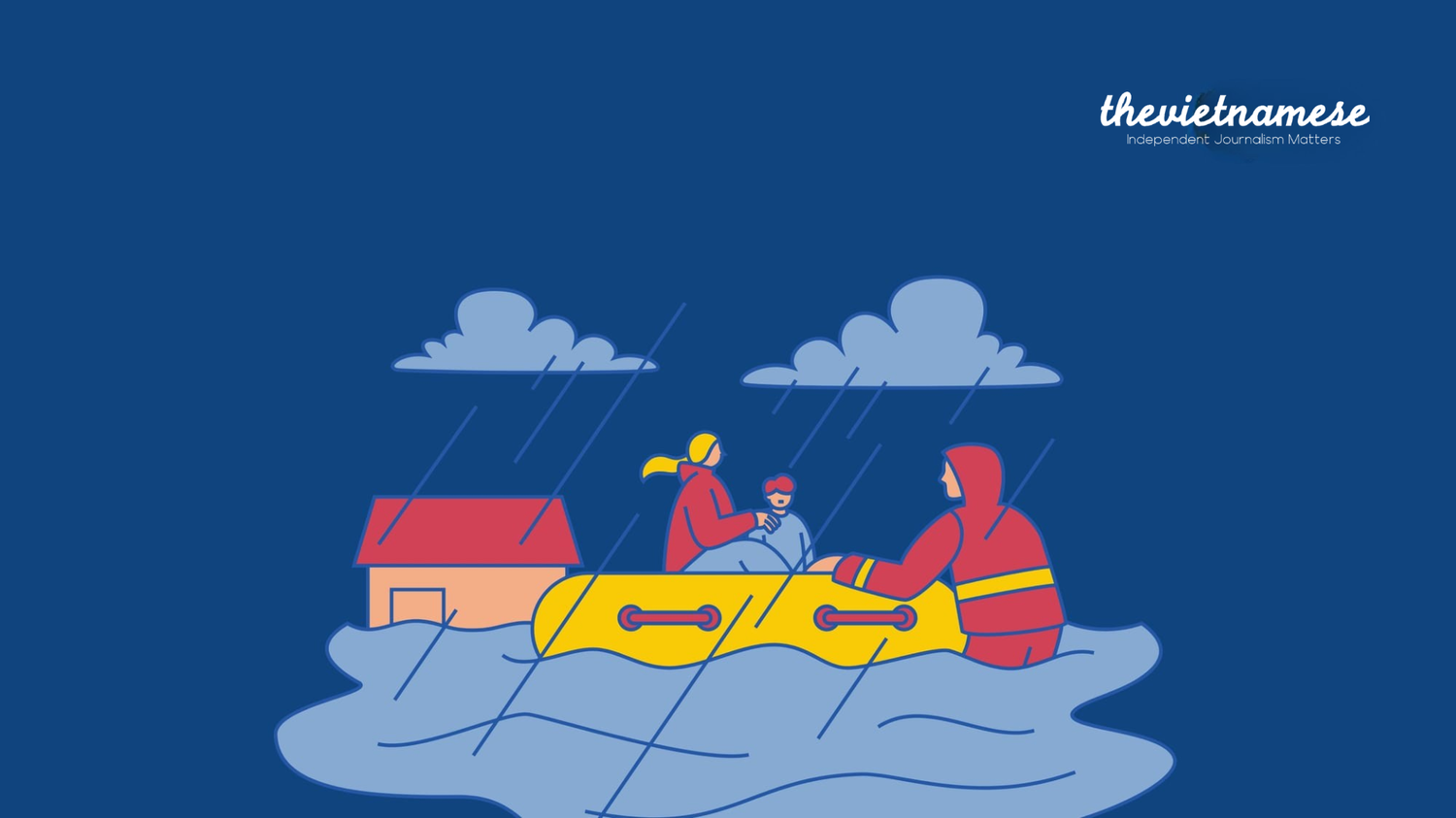As floods ravage northern and central Việt Nam, people across the country are mobilizing to help, from cooking rice and baking bread to sending donations. Despite these efforts, many relief goods never reach those in need. In some areas, supplies have piled up and spoiled, leading residents to plead on social media: “Please stop sending goods to this area.”
This situation has led to criticism that such charity is impulsive, uncoordinated, and ineffective. These criticisms, however, are not entirely fair. While many acts of charity do arise from a “movement” of collective emotion, this is not necessarily something to blame. Faced with heartbreaking scenes of flooding, people feel a deeply human and valuable impulse to contribute through food, labor, or donations.
It is unrealistic to expect these spontaneous volunteer groups to possess professional organizational skills, a clear grasp of supply and demand, or access to detailed logistical networks. Those are skills that require training and long-term experience.
The capacity for organized, coordinated relief typically belongs to the government and professional civil society organizations. The government remains a key actor in disaster response, but its resources are limited. Meanwhile, civil society organizations, which could in principle expand their reach, have been severely weakened in Việt Nam in recent years. [1]
The foremost duty of local governments in Việt Nam is to monitor and ensure political stability. Officials often have detailed knowledge of which neighborhoods contain “unstable elements,” which Party members have made “improper statements,” or which young people have “deviant ideological expressions.” In ethnic minority areas, authorities also devote significant energy to tracking religious practices.
However, it is clear that no local government, no matter how diligent, has the resources to deliver aid to everyone in need during natural disasters. Even if more funding were available, local authorities still lack the capacity to meet the wide range of material and emotional needs that people experience in such crises.
Even in a perfect scenario where the government had both the resources and capability to care for everyone, there would be no legitimate reason to exclude civil society organizations and professional charities from providing additional help.
To carry out social and humanitarian missions effectively, societies need professional organizations, including INGOs, NGOs, NPOs, and semi-professional social groups.
Staff members of these organizations are often well-trained, transferring international best practices and operating systematic, long-term programs. They specialize in diverse areas, from humanitarian relief and environmental protection to legal aid, public health, and women’s and children’s rights.
After a natural disaster, much more is needed than emergency relief alone, such as clean water, public health guidance, environmental cleanup, mental health support, and legal assistance. These are not spontaneous skills; doing this well in a crisis requires being well-prepared in ordinary times through professional training and long-term development. The more such organizations are allowed to operate freely in peacetime, the more powerful their response will be when disasters strike.
However, in recent years, the Việt Nam government has increasingly interfered with and restricted the work of NGOs and NPOs. [2] The arrest of several civil society leaders has created a wave of fear within the community. [3] [4]
The state often views these organizations as competitors rather than partners, driven by two primary fears. First, officials worry that civil society might win people’s trust, diminishing the state’s image as the sole guardian of the public good. Second, and more fundamentally, authoritarian regimes live in constant fear of resistance, worrying that any organization outside the state apparatus with strong grassroots connections could one day mobilize opposition.
It is precisely this fear of sharing power that drives such governments to suppress structured civil society. Yet, paradoxically, the professional capacity that makes these organizations a perceived threat is exactly what makes them invaluable to society—especially in times of crisis. By undermining them, the state not only weakens potential rivals but also deprives its citizens of the very institutions best equipped to rebuild after disaster.
Lê Vạn Hoa wrote this article in Vietnamese and published it in Luật Khoa Magazine on Sept. 16, 2024. Đàm Vĩnh Hằng translated it into English for The Vietnamese Magazine.
- Radio Free Asia. (2023). Why are NGOs, civil society, and community organizations facing difficulties and risks in Việt Nam? Radio Free Asia. https://www.rfa.org/vietnamese/in_depth/why-are-ngo-civil-society-facing-difficulties-and-risks-in-vietnam-08282023120014.html
- Radio Free Asia. (2023). Why are NGOs, civil society, and community organizations facing difficulties and risks in Việt Nam? Radio Free Asia. https://www.rfa.org/vietnamese/in_depth/why-are-ngo-civil-society-facing-difficulties-and-risks-in-vietnam-08282023120014.html
- Trần Cường. (2022, February 9). Bắt nữ giám đốc Trung tâm phát triển sáng tạo xanh GreenID. Thanhnien.vn. https://thanhnien.vn/bat-nu-giam-doc-trung-tam-phat-trien-sang-tao-xanh-greenid-1851427961.htm
- Trần Cường. (2022, December 20). Khởi tố ông Hoàng Ngọc Giao, Viện trưởng Viện PLD về tội trốn thuế. Thanhnien.vn. https://thanhnien.vn/khoi-to-ong-hoang-ngoc-giao-vien-truong-vien-pld-ve-toi-tron-thue-1851534007.htm

